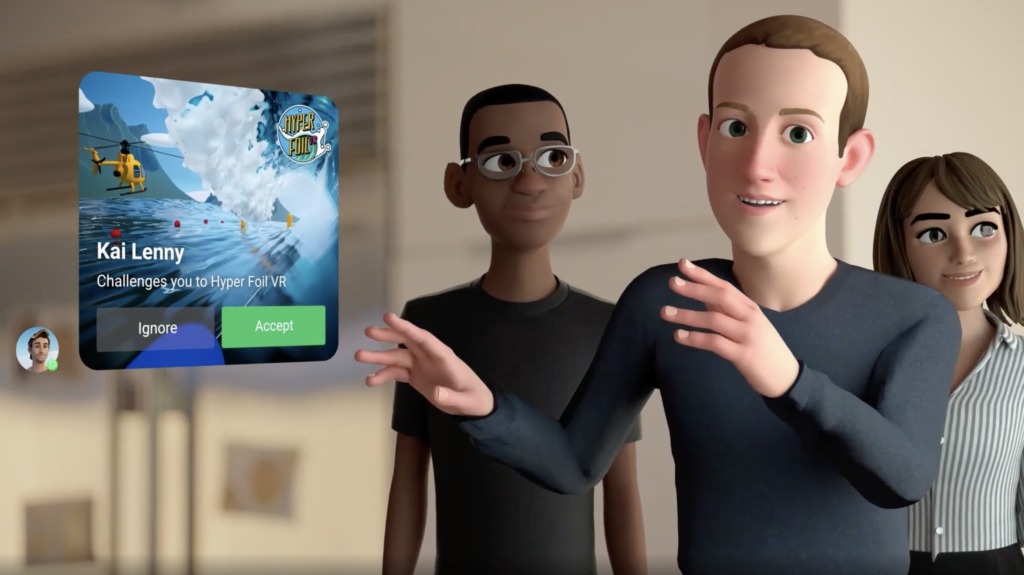|
By: Keegan Wagner In October 2021, Facebook rebranded to “Meta” as a response to a PR crisis and heavy flak from the general public on various claims. Critics say the move was in an effort to distract from these claims, some of which include negatively affecting social media user’s mental health, encouraging political polarization, and aiding in the spread of disinformation. Along with this, Zuckerberg announced that the company’s focus would shift from media to development of ‘the Metaverse’, a virtual world akin to the Oasis from the 2018 film Ready Player One. The goal is to use VR and AR technologies to allow users to socially interact with one another in a space that mimics real life, whether it be a virtual house or a virtual concert. Platforms similar to this already exist, a popular example being VRChat, a video game which provides users with an experience almost identical to what the Metaverse promises. Somewhat optimistically, Zuckerberg also stated that he hopes the Metaverse will be the future of e-commerce, work, and education. These ideas have become much more tangible with the recent COVID-19 pandemic causing many to be stuck at home and feeling disconnected from their work environments. The goal is to recreate those familiar settings and provide people with some semblance of normalcy. As Vox writer Shirin Ghaffary puts it, “I could see meeting participants all hang out in the same ‘room’ together, rather than their heads cropped into a mosaic of side-by-side 2D boxes like they would be on a Zoom call.” The overarching problem with the idea of this virtual world is that it banks on the nebulous ‘Web 3.0’ concept becoming commonplace. The actual definition of this concept is different depending on who is giving the definition, but the rough idea revolves around replacing tangible dollars with cryptocurrencies and ‘non-fungible tokens’ (or NFTs). Again, this description is vague, at best, and while it focuses on individual ownership of the internet, the methods are questionable. NFTs already have a bad reputation by being associated with risky money laundering schemes and out-of-touch celebrities. Add this to the fact that the use of cryptocurrencies is being encouraged by the same people who shook up GameStop on the stock market back in January 2021, and it does not help the case for Web 3.0. All things considered, the Metaverse and its various counterparts will likely take a long time before they actually become widely used, despite the best efforts of a tech-billionaire and pixel art creators on OpenSea.
0 Comments
Leave a Reply. |
Archives
May 2024
|
